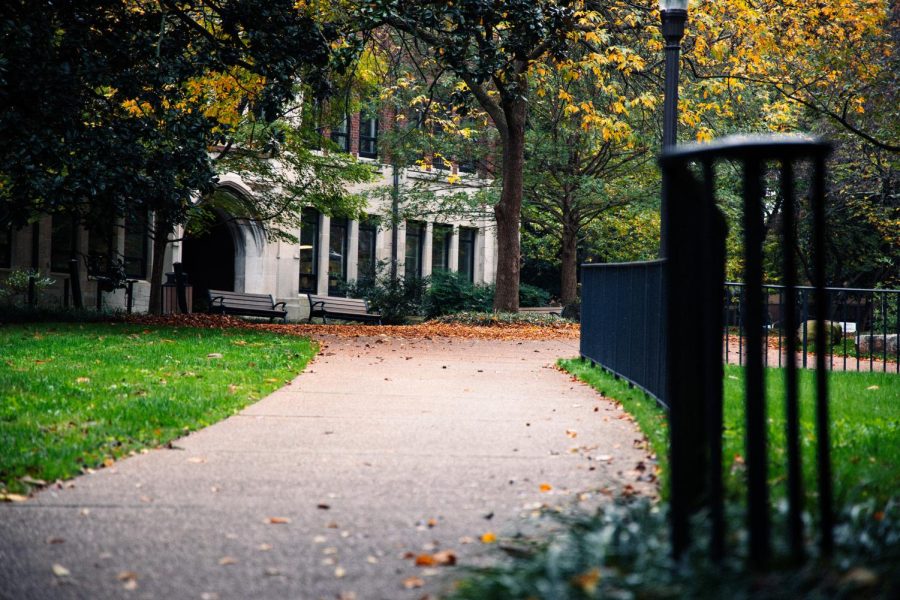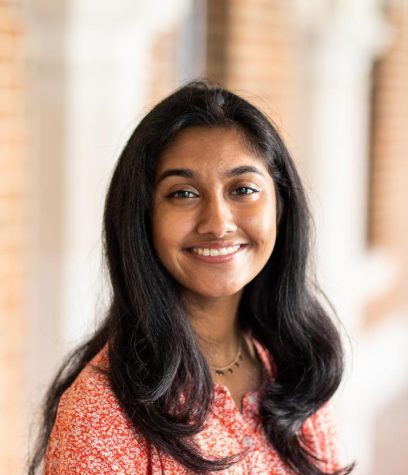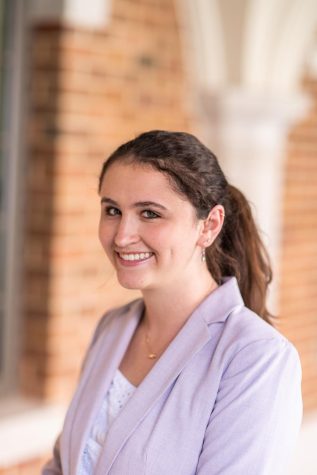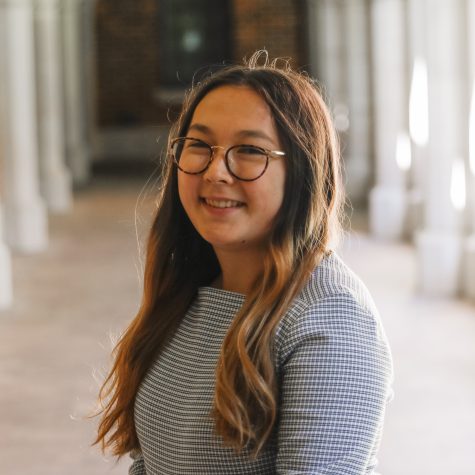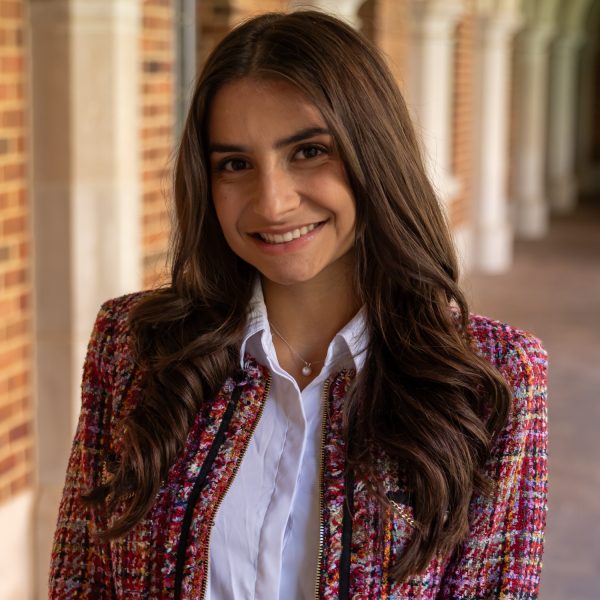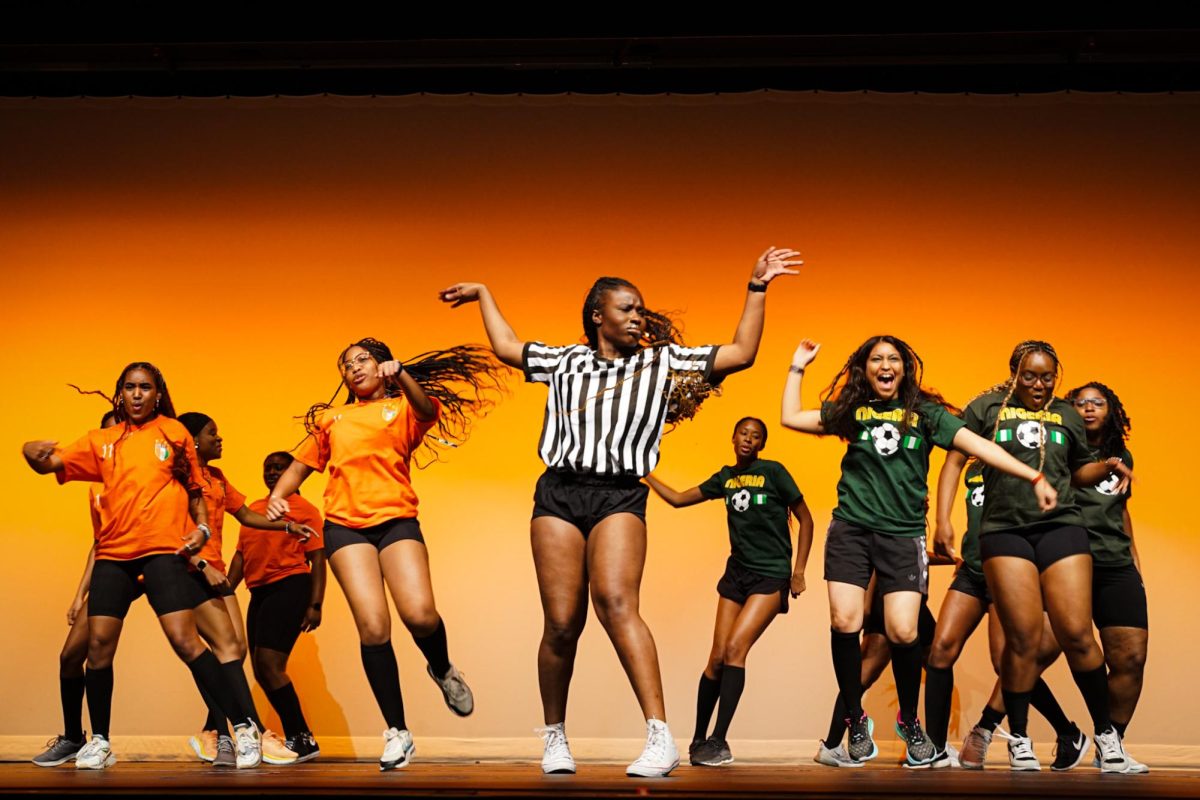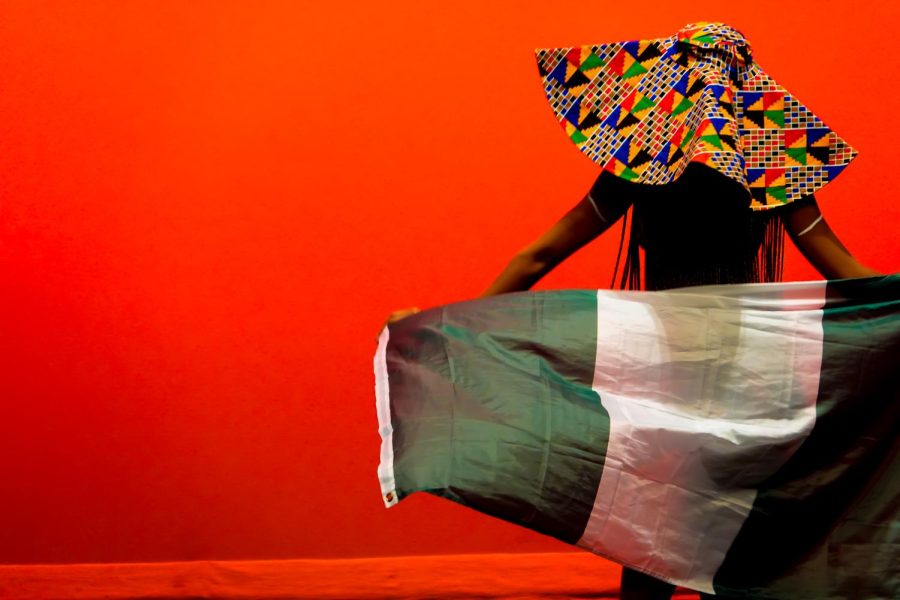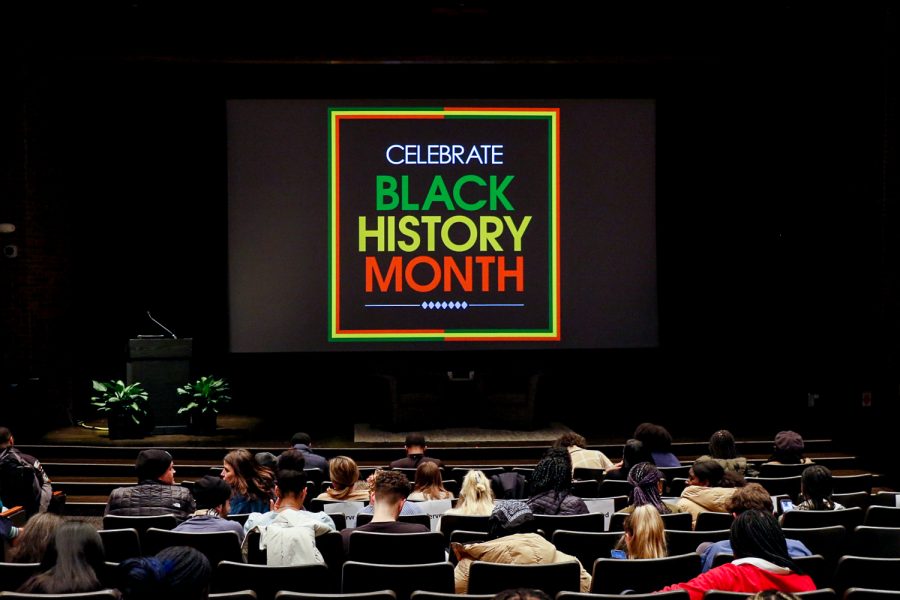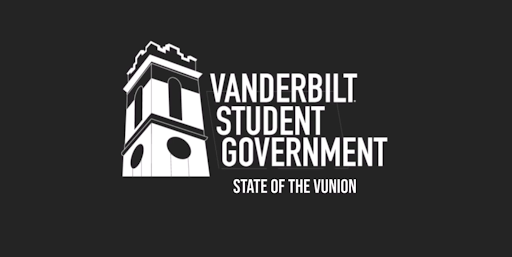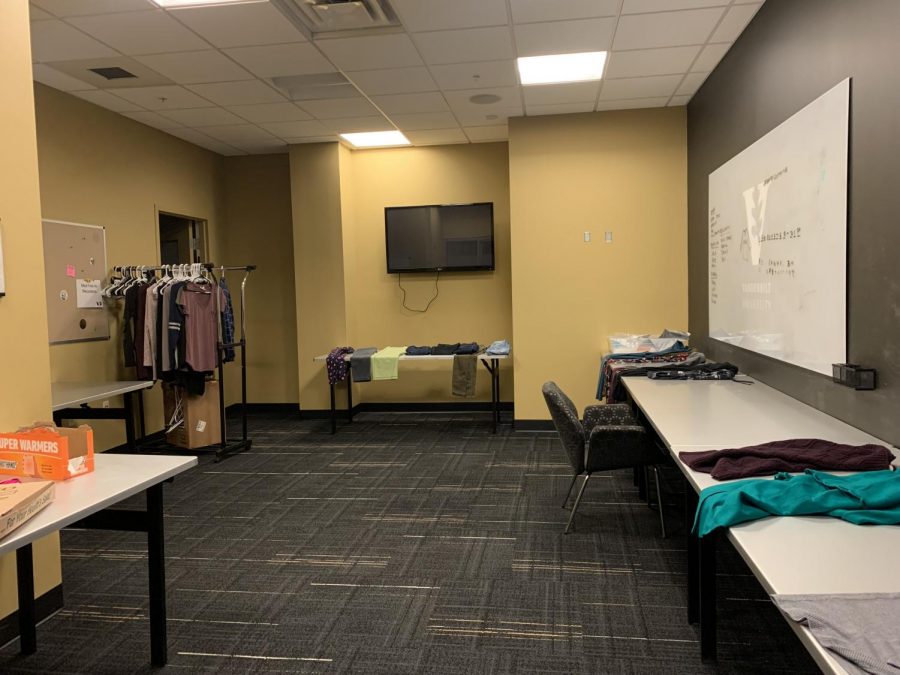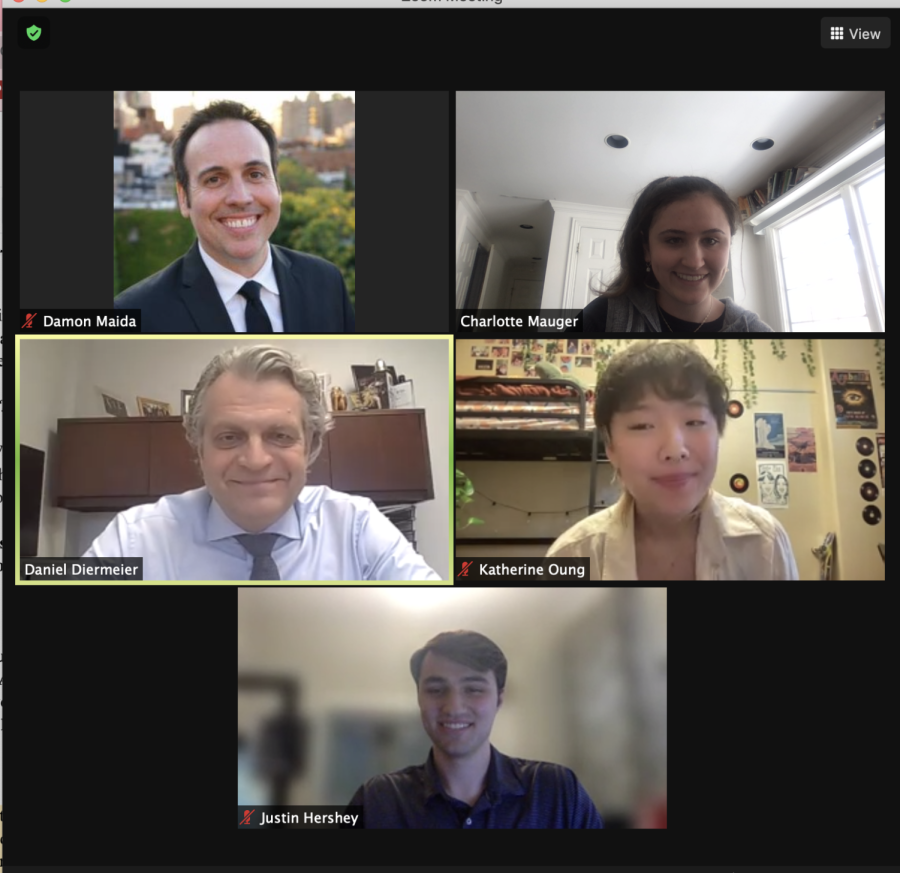UPDATED: This piece was updated at 8:56 a.m. CST on March 10 to include additional information regarding the University Chaplain’s involvement. This story was further updated at 11 a.m. CST on March 11 to include additional quotes from Rochman and more context regarding threats.
The African Student Union (ASU) and the Indigenous Scholars Organization (ISO) wrote a statement claiming that Rudy Rochman, a Jewish-Israel rights activist, made racist remarks during his speech at Vanderbilt Chabad’s Feb. 23 on-campus event. The statement, posted on March 2, demands a public apology from Chabad and has amassed 487 signatures as of print.
The ASU and ISO statement alleges that Rochman claimed Nigeria is “the most dangerous place in the world” which they feel creates harmful generalizations about Nigeria and its people. The statement also says he criticized Black people by equating Black power groups with white power groups, saying that they both target Jews. The statement further alleges Rochman was anti-Indigenous in his responses to questions regarding Native Americans’ land claims.
Rochman’s statements about Nigeria were made in relation to his personal experience traveling to Nigeria for a documentary film project, where he reports he was imprisoned under inhumane conditions for three weeks without cause. He said in a March 2 email to The Hustler that he spoke about his experience in Nigeria to shed light on the persecution of the Igbo people—including Igbo Jews—in Nigeria, who he believes should be free to return to Israel.
“Criticizing the Nigerian government for massacring Igbos or torturing innocent filmakers (my team and I) is NOT an attack against Nigerians, Africans, or POC. Nigeria is one of the most dangerous countries in Africa, the same way Afghanistan is one of the most dangerous countries in Asia, or Ukraine right now in Europe due to war,” Rochman said in March 10 email to The Hustler. “The level of crime and death rate in these places is not correlated to the culture, the people, the land, or the skin color of the human beings living in these countries.”
Rochman added that equating his critique of the current Nigerian government to an attack against all Nigerians or Africans is “extremely insensitive and outright racist” as it implies the actions of a small subset of the people are representative of a whole population. He voiced this disagreement with the ASU and ISO’s statement in March 2 and March 10 emails to The Hustler.
“It is a complete manipulation of what took place, all while gaslighting Jewish students and demonizing their voices,” Rochman said.
Beyond Rochman’s comments, the ASU and ISO statement highlights alleged instances of racist and anti-Indigenous comments from white attendees outside the room where the event was held. It further alleges that Chabad Co-Directors Rabbi Shlomo Rothstein and Nechama Rothstein as well as Chabad executive board members invalidated ISO members’ realities and questioned their intentions of attending the event.
Shlomo Rothstein said Chabad’s event and comments were not intended to be offensive, and they are working with the administration to address students’ concerns. Nechama Rothstein echoed these sentiments in a March 9 email to The Hustler.
“I apologize for any unintentional consequences and hurt that came about at our event,” Nechama Rothstein said. “While it was never our intention to make anyone feel uncomfortable, and my choice to engage these students was motivated by a genuine desire for dialogue and understanding, I recognize and respect that they perceived things differently.”
Executive board members of Chabad sent a response, later made public, to ASU President and senior Chidiogo Nwakoby and ISO Co-President and senior ‘Ana Fonongava’inga Stringer on March 3. The statement says that the board understands why some of Rochman’s comments were interpreted negatively and received backlash. They also highlighted alleged increases in campus antisemitism in response to the event, and Jewish students have further reported receiving threats following the event.
A banner in solidarity with the ASU and the ISO was posted outside Rand Dining Center on March 2. It was removed by the Office of the Dean of Students that night due to a violation of a policy requiring on-campus banners to be visibly affiliated with a registered student organization. Students put up a new banner, attributed to ISO, on March 3 and guarded it overnight. The banner was taken down again on March 5 due to Spring Break postage policies, according to an email sent to The Hustler from Vice Provost and Dean of Students G.L. Black.
The Muslim Students Association (MSA) also released a statement on Instagram in solidarity with the ASU and the ISO on March 3.
Vice Chancellor for Equity, Diversity and Inclusion (EDI) and Chief Diversity Officer André Churchwell and Black sent an email on March 8 to the Vanderbilt community acknowledging the controversy surrounding the event and stating that threats, incidents of discrimination, harassment and retaliation would be handled by the Equal Opportunity and Access Office and the Office of Student Accountability, Community Standards and Academic Integrity.
“We have heard from and acknowledge the feelings of African, Black, Indigenous, Jewish and Muslim students who have been hurt by these incidents,” the email reads. “We hear you and are here to provide support.”
Rochman event and protest
Chabad posted on Instagram that the event would discuss Israel’s ideological and geopolitical importance. Held in Buttrick Hall, the event lasted approximately an hour and a half and garnered over 110 attendees.
“The goal of the lecture was to promote more peace and more empathy about a difficult topic that is not always talked about,” Shlomo Rothstein said. “We want to share the Jewish story and highlight aspects of antisemitism.”
Per the ASU and ISO statement, a group of 30 student protestors attended the event to ask Rochman questions. Stringer told The Hustler that the group wanted to protest Rochman’s alleged past statements about Palestinians, which they found “problematic” and “violent.”
During the event, Rochman spoke about his experience in Nigeria, intersectionality, Zionism and activism at universities among other topics. A Q&A session was held afterward, during which questions were posed about Nigeria, Indigenous land claims in the U.S., the Israeli-Palestinian conflict and more. Rochman’s comments about Indigenous land claims spurred some protestors to walk out of the event, though some later returned to ask more questions.
The Hustler viewed a private 89-minute video of the event; however, parts of the footage were omitted due to alleged issues with phone battery life and storage, as well as interruptions from phone calls.
Per the video, Rochman stated that the Nigerian government is “completely corrupt” and has “no backbone” during the Q&A portion of the event. In footage of a conversation with a student after the event, Rochman also confirmed that he said Nigeria is “one of the most dangerous countries in the world” and “arguably” the most dangerous country in Africa during the event.
Rochman’s statements about Nigeria were made in relation to his personal experience traveling to Nigeria for a documentary film project, where he reports he was imprisoned under inhumane conditions for three weeks without cause. He said in a March 2 email to The Hustler that he spoke about his experience in Nigeria to shed light on the persecution of the Igbo people—including Igbo Jews—in Nigeria, who he believes should be free to return to Israel.
Chabad’s statement emphasizes Rochman’s intention to speak about his personal experience but acknowledges that his comments about Nigeria could have been perceived as a harmful generalization.
“It was our oversight as an organization in not clarifying the verbiage and discussion points that Rudy would use and emphasize during the event,” Chabad’s statement reads. “It was not our–nor his–intention to generalize or harm, yet we hear you and understand why some of his comments were taken negatively and deemed hurtful.”
During the Q&A, the video shows that ASU member and junior Farouk Haroun, a Nigerian student, told Rochman that he attended the event to learn more about Israel and did not expect Nigeria to be a topic of discussion. He also stated that he felt Rochman used the Nigerian Civil War to create harmful perceptions of Nigeria, emphasizing in an email to The Hustler that Rochman generalized Nigeria as “the most dangerous country.”
“Most of my friends are Igbo. I do not like what happened in the war, what happened in 1967. We still don’t like to talk about it because we regret what happened,” Haroun said during the Q&A portion of the event. “But that was in the past, and we have taken measures to take precautions to ensure the Igbos feel among [us].”
Rochman stated that violence against the Igbo people is ongoing and the war represented a “systemic extermination” of the Igbo people. He also emphasized that he did not intend to make stereotypes about Nigeria.
“I’m not here to generalize the Nigerian people or people of color or Africa, who are all different groups,” one clip shows Rochman saying in response to Haroun. “I’m here to talk about the fact that this government is doing bad things to people today.”
Haroun, however, still expressed concern in the video that Rochman’s comments would negatively skew event attendees’ view of Nigeria. ASU Harambee Co-Chair and senior Clara Dokyi said she had similar worries about student perceptions of Nigeria, African Americans and Africa overall after listening to Rochman speak.
“[The rhetoric surrounding Nigeria] is a very dangerous rhetoric that’s being put out there, and that’s what perpetuates systems of oppression,” Dokyi said in the video.
The ASU and ISO statement also takes issue with Rochman allegedly saying Palestinians weaponize intersectionality to convince the Black community that their struggles are connected.
In the video, Rochman stated that, while intersectionality is a “great idea in theory,” he feels it has been used to turn various minority groups against Israel. For example, he said those who are anti-Israel equate police brutality against Black people to the brutality of Israeli Defense Forces (IDF) toward Palestinians to promote anti-Israel sentiment in the Black community.
“Every single extremist group that exists, the one thing that they all agree on is that the Jew is the problem,” Rochman said during the lecture. “So, we have to be very careful of taking other people’s suffering and experiences and finding a way to attach it to the Jewish people.”
The ASU and ISO statement claims that Rochman’s alleged “racist discourse” continued in the Q&A portion of the event when he answered questions regarding Native American land claims.
Footage shows that graduate student Dante Reyna, an ISO member and a Tzotzil Maya, asked Rochman if he supports the Native American Land Back Movement given his support for Zionism. This movement calls for the reclaiming of land taken from Indigenous populations in North America through the Land Removal Act of 1830.
Rochman responded that he cannot speak on a people’s specific relationship to their land, other than his own. However, he said he believes in “Indigenous liberation for all peoples,” prompting Reyna to ask a follow-up question.
“Right now all the [Indigenous] land is appropriated by whites, the oppressors of my people, so our way of liberation like you mentioned for your people, is to get that land back,” Reyna said. “Our ties are to this land, so would you support that movement to give us our land back that was unrightfully taken so many years ago?”
Rochman’s response did not directly endorse the movement, and he warned against solving injustices with more injustice.
“I think it’s very dangerous to blame the descendants of colonizers for the actions of their ancestors,” Rochman said.
Following the event, Reyna told The Hustler that he felt Rochman’s views were hypocritical in light of his support for Zionism.
“We as Indigenous peoples have one thing in mind: we want our right of self-determination back and that starts with our land that was stolen,” Reyna said in a message to The Hustler. “He [Rochman] doesn’t apply the same lens he did with Zionism to Indigenous peoples despite naming supposed intersectional points of struggle between the two groups.”
The video footage shows that many attendees walked out of the event after Rochman’s response; some students who left the event later returned and asked Rochman more questions.
Rochman commented on this in a Feb. 28 Instagram post about the event.
“Some of these students [who walked out] even came up to me at the end and apologized for walking out and thanked me for coming,” his post reads. “The highlight of the night was when members of the Palestinian group and Muslim Students Association both came up thanking me for working to get Israelis & Palestinians to wake up and take responsibility over our future together.”
The MSA posted a statement on March 3 in support of the ASU and ISO statement and denies that MSA members thanked Rochman after the event. The MSA statement also cites alleged breaches of privacy in Rochman’s Instagram post, in which MSA members are pictured allegedly without having given consent.
Per the MSA statement, Rochman’s Instagram caption initially stated that he spoke to the MSA president, but the post was edited following a complaint from MSA to University Chaplain and Director of the Office of Religious Life Rev. Chris Ross Donald. In a March 1 email obtained by The Hustler, Donald asked senior Ester Teper, Chabad president, and Shlomo Rothstein, on behalf of the MSA, to contact Rochman to edit the caption of his Instagram post for accuracy and to remove pictures featuring students who did not give consent to being posted. Teper then forwarded this information to Rochman.
Sophomore Mert Sekmen, a member of MSA that helped draft the statement, pointed the Hustler to two sections of the Student Handbook as the basis for their claim that Rochman breached university policy. The handbook specifies that individuals, including speakers, must have “authorization” prior to recording and abide by policies regarding the use and distribution of recordings. It also condemns student conduct that affects the privacy of another community member by any means, including the publication of photos. If the policy is breached, action may be taken via the university’s accountability process.
The university did not respond to The Hustler’s request for comment about the alleged policy violation and its involvement in facilitating the change in Rochman’s caption.
Student responses and threats
The ISO responded to Chabad’s statement on March 3 on their Instagram story and demanded a public apology and more widespread accountability, noting that the executive board’s statement was originally only sent to two people. ASU reposted the same message on their Instagram story later that day.
“Chabad continues to gaslight our students, like about the events that took place, and refuse accountability,” the ISO Instagram story read. “We continue to call on Chabad for an apology for the events detailed in our letter.”
As requested by the ASU and the ISO, Chabad shared its statement publicly on its Instagram on March 4, referring to it as a “letter of peace.” The statement discusses harm that Jewish students have faced in the aftermath of the event. Several threats toward Jewish students were made as Instagram comments on the ASU’s Instagram post of their joint statement with ISO.
Nwakoby said the ASU and ISO statement did not aim to incite antisemitism.
“We understand that the Jewish community has oppression; antisemitism exists in the world and we condemn that,” Nwakoby said. “We just want an apology and acknowledgment that [what occurred at the event] was wrong, and that in the future, when they invite people to speak, they make sure to conduct themselves in a way that is representative of Vanderbilt’s values.”
Teper sent an email to university administrators on March 2 about threats made against her and other members of the Jewish community.
“I am Jewish. I am Israeli. I am proud of these identities, and each and every time I express them on this campus, I am met with hate, demonization of my voice, and defamation of my character,” Teper’s email reads. “I feel unsafe and targeted by a select group of repeat-offender students on this campus.”
Shlomo Rothstein also expressed concern regarding the threats and accusations of racism directed at members of Chabad.
“Students have expressed everything from anger to fear; people have cried in my office,” Rothstein said. “The accusations against Chabad and the students are baseless; calling them racist is not true. [It] is harassment and bullying and is anti-semitic.”
In emails obtained by The Hustler, senior George Victor, a Jewish student who attended the event and read the ASU and ISO statement, emailed Student Body President Hannah Bruns on March 3 and asked for a conversation to understand their “varying perspectives” regarding the event.
“It absolutely pains me to know the student leader of this school is both condoning and supporting the unequivocal demonization of Jewish people,” Victor said in his initial email to Bruns. “Say what you want about Rochman’s speech, but I was there too, and I know exactly what he said and how ASU has both blown it out of proportion and lied about certain claims—it presented an illusion, not reality.”
Bruns responded by telling Victor that she would not speak to him until Chabad and every attendee at the event apologizes to “every single African and Indigenous student” at Vanderbilt.
“I know that accountability is a hard concept for white people to grasp, but it is usually started with an apology and followed with acts of restorative justice,” Bruns’s response email reads.
Victor asked Bruns for a conversation again in a follow-up email, which Bruns also refused given that no apologies had been issued. Bruns said in a message to The Hustler that she stands by what she said in her emails to Victor.
“Even though I am student body president, before I am that, I am an individual, I am a Black woman. I will ALWAYS stand up in the face of racism because that’s how I was raised,” Bruns said.
Victor told The Hustler that he feels it is Bruns’s duty as an elected leader to engage in “civil discourse” with the student body.
Rochman posted a screen recording on his story on Feb. 28 showing private messages that he received from junior Calvin Kamson. The conversation was initiated by Kamson and includes personal attacks and explicit language against Rochman. Kamson said he “dare[s]” Rochman to return to Vanderbilt, threatening that he [Kamson] will “end his [Rochman’s] career of spreading zionism” and Kamson questioned the Jewish people’s legitimacy as a group.
Kamson said in a message to The Hustler that he wishes Rochman had posted the rest of their conversation, which took place after Rochman posted the initial messages. Kamson said he “tried to be very civil” when communicating with Rochman and felt Rochman attempted to portray him as antisemitic.
“I do believe his agenda was to try threatening me, so that he could get his followers to say whatever remarks to me, even though they didn’t know why I said the things I said,” Kamson said.
Later in the conversation, Kamson and Rochman spoke about Rochman’s time in Nigeria. Rochman told Kamson about being imprisoned, while Kamson told Rochman that he is Nigerian and is worried about a false narrative being spread about the country. Kamson further stated that he hopes Rochman comes back to campus so they can have a longer discussion about this matter.
“This has nothing to do with politics, this has nothing to do with being against Nigeria,” Rochman said in a voice message to Kamson. “I actually love Nigeria as a country. I’m against the government, what they’ve done to Igbos, what they still do to Igbos, and what they’ve done to me. I didn’t talk about Nigerians in general, I only spoke about the government”
Churchwell said in an email to The Hustler that the Office of EDI is working to address reports of discriminatory rhetoric during Chabad’s event and is in the process of scheduling meetings with affected students.
“Civil discourse is critical to the fabric of the Vanderbilt community,” Churchwell’s email reads. “It is essential that all members of our community adhere to high standards of conduct aligned with our commitment to a safe, welcoming and inclusive campus for everyone.”


